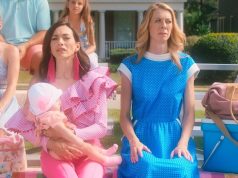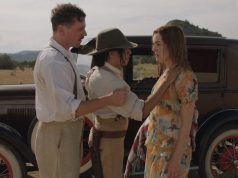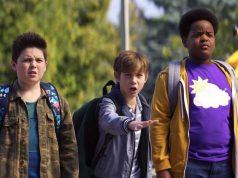The laws of Hollywood dictate that any film grossing more than $100 million must produce a sequel, regardless of whether anyone has a good idea for it. The only things more common in America than lackluster sequels are critics’ columns bemoaning them.
But I find “The Ring Two” particularly disappointing, not because it’s a bad movie — it’s more mediocre than bad — but because it so thoroughly fails to live up to its forebear. Deconstruct “The Ring,” the uber-scary 2002 hit about a videotape that kills its viewers, and you’ll find that nearly all of its positive qualities are absent in “The Ring Two.”
We pick up the story six months later. Rachel Keller (Naomi Watts) and her young son Aidan (David Dorfman) have moved from Seattle to rural Astoria, seeking a new life and to forget the death and mayhem they witnessed in Seattle (an experience common to many residents of that city, I understand).
Readers who have not seen “The Ring” should not read any further, as secrets will be revealed. That film ended with Rachel and Aidan breaking the curse of the videotape by showing it to other people: Apparently, all the dead, wrathful Samara wanted was for people to see the weird tape she made (or commissioned; I was never clear on how, exactly, the tape came to be, though I can tell from watching it that college film students were involved).
Now, half a year later, the tape has re-emerged in little Astoria, and not everyone knows how to survive it. In addition, Samara (now played by Kelly Stables) begins making cameos in the dreams and waking life of Aidan, leading Rachel to summarily conclude — correctly, as it turns out, but without much evidence to warrant the conclusion — that Samara wants to take over Aidan altogether, to BECOME him and thus to live again.
The only way that idea doesn’t give you the willies is if you’ve had your willies inoculation, but the film goes about executing it in entirely the wrong way. “The Ring” had a certain straightforward logic to it: You watch the tape, and seven days later you die, preceded immediately by sudden weird events (water on the floor, TVs turning on spontaneously, etc.) that foretell your imminent doom. In the sequel, there is no more logic. The odd events occur randomly and as harbingers of nothing in particular, and the movie is centered around them. Samara shows up, or lights flicker, or TVs turn on — and then that’s all that happens. It’s a desperate movie’s way of suddenly grabbing our hands in an attempt to startle us, hoping we will confuse being startled with being scared.
But “The Ring Two” is not scary. Granted, Samara retains a certain creepiness merely in the way she walks and moves, and there are moments early on where the movie achieves a modicum of dread. But beyond that, we have nothing but sudden jolts and senseless eeriness, scattershot elements that might be frightening if there were any rhyme or reason to them.
Sequels are uphill battles anyway, but particularly in the case of a movie that was based so much on solving a mystery: What’s the story behind the tape and the creepy little girl? With those questions answered 2 1/2 years ago, there’s not much that a sequel can do to surprise us without contradicting what we already know. Some new information is revealed by a crazy woman played by Sissy Spacek, but it might fall under the “contradiction” category. At the very least, it’s too little, too late: Any movie that has its protagonist go to a mental hospital in search of guidance is grasping at straws. (Of course she’s going to advise you to listen to the voices in your head. What else would a crazy person tell you?!)
“The Ring Two” has a troubled history, with multiple re-writes and start-overs and several directors being involved. The screenwriter wound up being Ehren Kruger, who wrote the first film (well, adapted it from the Japanese flick of which it was a remake), and the director is Hideo Nakata, who directed both the original Japanese film and its sequel (which bears no resemblance to THIS sequel, by the way, and which is supposedly much worse). How two men who know the material well enough to get it right got it so wrong, I don’t know. Perhaps that’s the mystery we should be investigating now.
C (1 hr., 51 min.; )





